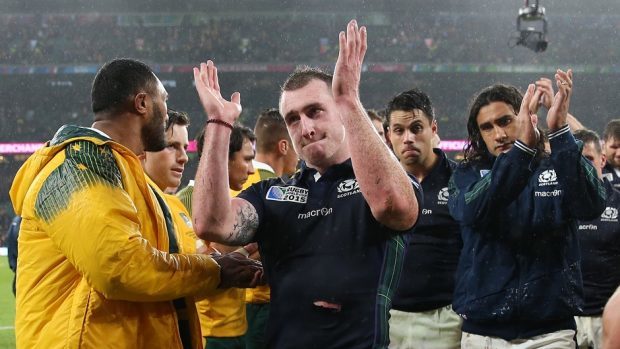Rugby legend David Campese has accused the sport’s administrators of devising a “ridiculous” fixture schedule which is leaving players “burned out” prematurely.
The Australian legend, wing wizard and former World Cup winner, was speaking ahead of Scotland’s meeting with his compatriots at Murrayfield on Saturday.
And Campese told The Press and Journal he feared for the future of international rugby, given the increasing schedule of global games between the world’s leading players.
He said: “It all seems to be about quantity over quality these days and Australia’s leading players are on a treadmill. They played well for 20 minutes against Wales last week and that was enough. They’ve had so many matches in 2016 that I’m not surprised they are up and down.
“Scotland, on the other hand, are like Wales: they haven’t played a Test for months, so who knows how they will perform this weekend? They pushed Australia close when the teams last met in the World Cup, but some people are going on as if that was four or five years ago.
“It wasn’t. It was only a year ago. And that sums up modern rugby. There are so many games the X Factor is in danger of vanishing. It also doesn’t help that referees have so much say over results these days.”
Campese feels the Scots could be motivated by the memory of their heartbreaking 35-34 loss at the World Cup when a controversial decision by referee Craig Joubert gave the Wallabies a last-minute penalty for Bernard Foley to kick.
But he doesn’t have too much sympathy for Vern Cotter’s men. As he said: “It was a sore one for Scotland to take, but if they had won their own line-out, they would have won the game, so they can’t just blame the official.
“Perhaps it will motivate the Scots and they’ll play out of their skins. But it was a moment in time, it has gone, so they should really be looking ahead, not worrying about something they can’t change.”
“They are up against a side who seem to have been playing big matches every couple of weeks since February. It’s a crazy situation, but obviously, TV pays for these matches and rugby is in danger of going down the same route as cricket.
“Don’t get me wrong, there are still great games and the Ireland victory over the All Blacks [in Chicago last Saturday] showed that rugby still has the power to excite and entertain.
“But that is the exception, not the rule.”
